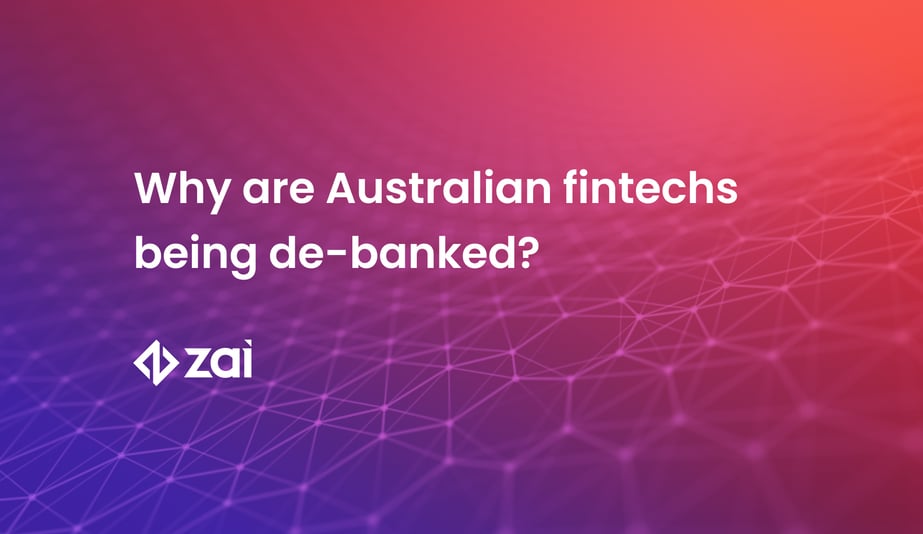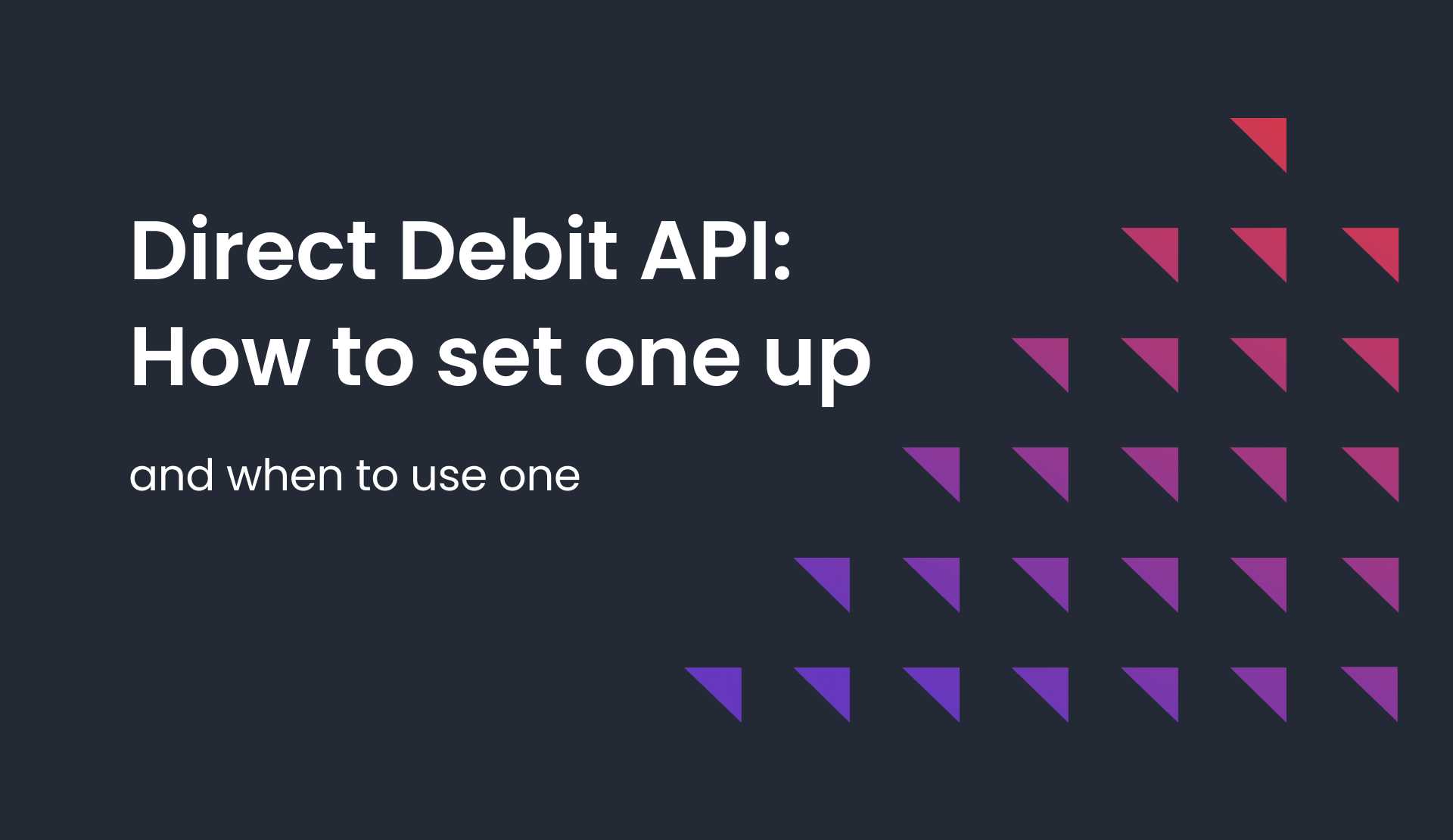In the past few years, over 100 financial services companies in Australia have been de-banked and are having to find alternative solutions to manage accounts.*
Companies like Nium have publicly talked about the issues they’ve faced specifically in Australia, and AUSTRAC has also published press releases taking a stance against de-banking without adequate explanation. If your company has been de-banked, it’s likely that you have a lot of questions and are unsure of what your alternative options are.
In this article, we’re going to break down:
Are you looking for support with custom payment flows? Get in touch with us to see how we can help support you.
What are the consequences of being de-banked?
The report developed by the Council of Financial Regulators describes de-banking as:
“De-banking occurs when a bank declines to provide banking services or withdraws banking services from an existing customer. Banking services in this context refers to transaction accounts and not the provision of more complex banking or credit products.”
They also admit that: “Over the past decade, Australian banks have been de-banking customers, including FinTechs, DCEs and remittance providers.”
Multiple fintech companies have been de-banked in Australia, most notably, the payment processing platform Nium. James Eyers, senior reporter at the Financial Review, explains in an article on de-banking that Nium says that Australia is the only country out of the 40 where it operates where its bank accounts have been shut down without adequate explanation.
According to Fintech Australia’s CEO, Rebecca Schot-Guppy, out of the 100 fintech companies that have been de-banked, many are afraid to speak out.
The immediate consequence of de-banking is that the fintech company can no longer take on new customers. Not only can they no longer take on customers, but they’re often only given 90 days to cease all active transactions. This often results in fintechs having to migrate away and even issue refunds.
The long-term consequences of de-banking are well put in a press release by AUSTRAC:
“The effect of de-banking of legitimate and lawful financial services businesses can increase the risks of money laundering and terrorism financing and negatively impacts Australia’s economy.
For this reason, AUSTRAC continues to discourage the indiscriminate and widespread closure of accounts across entire financial services sectors.”
Fintech businesses provide important and valuable services to communities and Australia, and, as AUSTRAC says in their press release, having a fintech’s account automatically closed just to avoid managing risks can seriously negatively impact individuals and their businesses.
AUSTRAC also says that the closing of accounts leads to businesses being less open with their relationships, and can have negative impacts on law enforcement. It might also lead to financial services companies having to regularly change financial institutions, which could cause issues with customer loyalty.
The report also mentions that “The Participating Agencies acknowledge that while banks must make commercial decisions, they also have corporate social responsibilities. [..] Denial of banking services to some groups and individuals would increase the risk that they are forced to operate outside the formal economy.”
Why does de-banking happen (and who is affected)?
According to the report, de-banking is caused by a number of issues including, Anti-Money Laundering laws, sanctions compliance, reputational risk considerations, and profitability.
Who is most likely to be affected?
The reality is that any company that offers payment facilities is at risk of being de-banked.
In the past, the industries most commonly affected were cryptocurrency exchanges, fintechs, remitters and lenders.
If you’ve been de-banked, what are your alternatives?
If your company has been de-banked, here are some possible alternatives:
1. Find out why you were de-banked
The first solution is to focus on rectifying the solution, which means understanding why your company has been de-banked.
It comes down to the scenario and the situation, but it’s important to understand why it happened and what can be done to rectify it. This should be the primary objective from the moment you receive notice from the bank.
2. Set up a plan to rectify the situation
For example, if you've been de-banked because your PCI DSS certification has expired, then set up the first steps to reinstate the certification.
Consider the reasons your company might be de-banked, and look for ways to de-risk your company. If you are de-banked until further notice, that usually means you can plan to amend the situation and you might be onboarded again.
3. Take steps to de-risk
As mentioned above, de-banking is all about risk. This means that to avoid being de-banked, you need to take the right steps to de-risk your company.
Make sure you have some sort of legal advice, whether it’s legal counsel or documentation that explains why your company might have certain exemptions. You then want to look at the internal processes of your business and make sure you have a plan explaining each process.
4. Search for other providers to work with
Most providers cannot work with a company that's been previously de-banked, which is why your company will be put through a thorough review if that is your case.
Be prepared for questions banks and payment providers will ask when you reach out to them, such as:
-
What led you to be de-banked?
-
Was there money laundering? Or malpractice?
-
Are you holding back on processing chargebacks?
-
What’s your level of risk?
Providers will want to know how the cause of your de-banking may affect them.
When a provider or bank onboards you, they’ll also ask certain questions to understand your processes, such as:
-
What happens when there’s a chargeback?
-
How do you capture funds from the seller?
-
What is the worst and best-case scenario?
-
Do you have anti-money laundering (AML) processes in place?
You may also like to read, Now that Volt Bank has closed, what are your options as an Australian fintech company?
Keep a customer lens on at all times
More industries are becoming regulated, which means that if you want to continue providing financial services as a company, compliance must remain the main focus.
However, this shouldn’t be at the cost of your customer experience. When it comes to picking a payment provider or getting a licence, it’s important to understand what that means for your customer.
The best way to go about this is to maintain a customer lens: when you start working with a payment provider or moving funds into different accounts, ask yourself: what does that mean for your customer?
With the customer lens on at all times, it’s easier to understand and plan for the possibility of being de-banked. Failure to do so will affect the reputation of your business and potentially increase losses from being offboarded.
If your company has been de-banked, you'll need to ensure you have strong legal counsel, a plan to become compliant, and a good understanding of why you were de-banked. This will hopefully set you back on track.
Want to talk about creating customised payment flows to improve your customer experience? Reach out to us now to get started.
This information is correct as of December 2022 This information is not to be relied on in making a decision with regard to an investment. We strongly recommend that you obtain independent financial advice before making any form of investment or significant financial transaction. This article is purely for general information purposes.
*Sources:
https://www.afr.com/companies/financial-services/de-banking-of-fintechs-is-rife-senate-committee-told-20210908-p58puh
https://www.cfr.gov.au/publications/policy-statements-and-other-reports/2022/potential-policy-responses-to-de-banking-in-australia/
https://www.austrac.gov.au/news-and-media/media-release/austrac-statement-2021-de-banking



